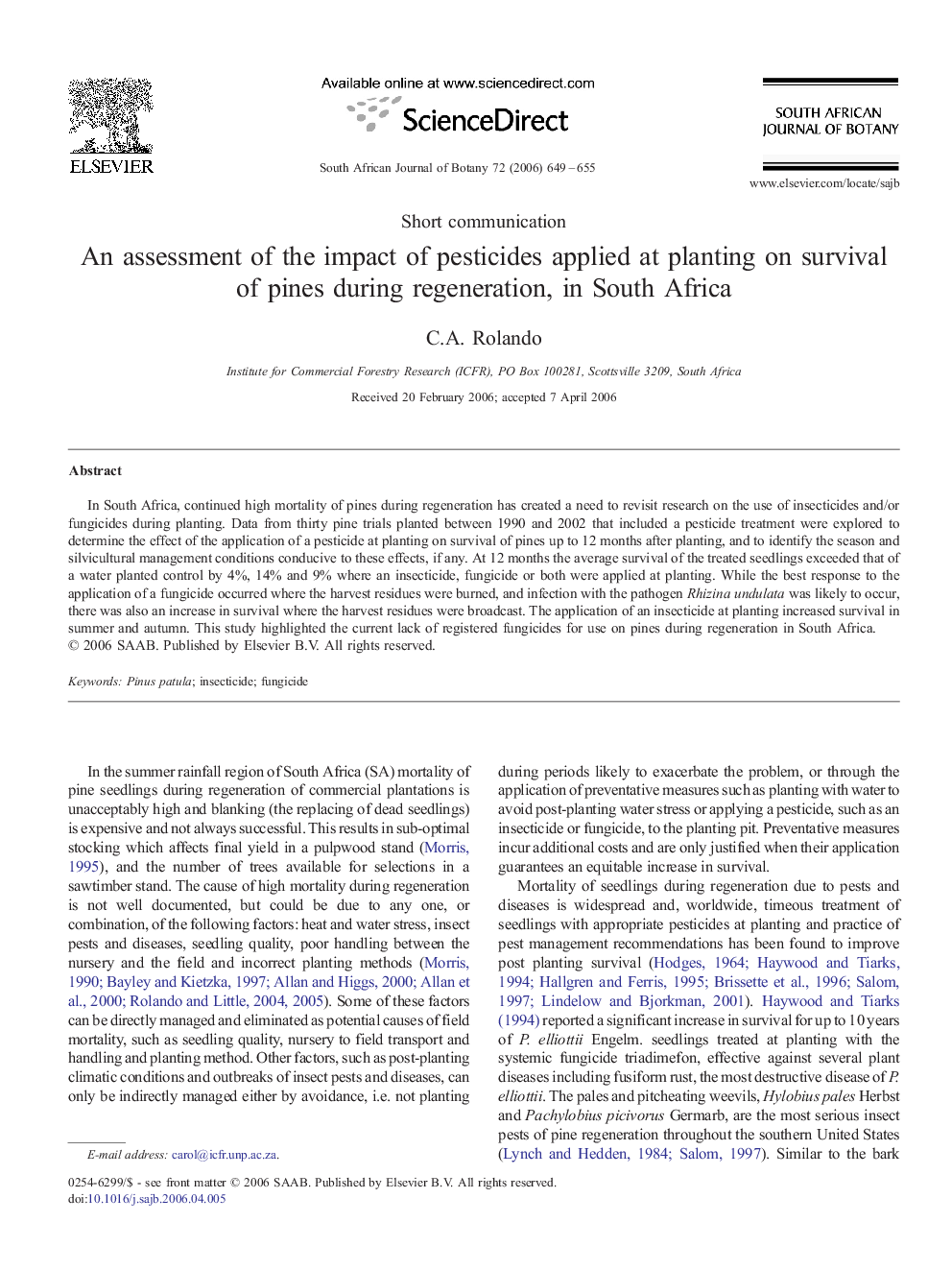| Article ID | Journal | Published Year | Pages | File Type |
|---|---|---|---|---|
| 4521812 | South African Journal of Botany | 2006 | 7 Pages |
In South Africa, continued high mortality of pines during regeneration has created a need to revisit research on the use of insecticides and/or fungicides during planting. Data from thirty pine trials planted between 1990 and 2002 that included a pesticide treatment were explored to determine the effect of the application of a pesticide at planting on survival of pines up to 12 months after planting, and to identify the season and silvicultural management conditions conducive to these effects, if any. At 12 months the average survival of the treated seedlings exceeded that of a water planted control by 4%, 14% and 9% where an insecticide, fungicide or both were applied at planting. While the best response to the application of a fungicide occurred where the harvest residues were burned, and infection with the pathogen Rhizina undulata was likely to occur, there was also an increase in survival where the harvest residues were broadcast. The application of an insecticide at planting increased survival in summer and autumn. This study highlighted the current lack of registered fungicides for use on pines during regeneration in South Africa.
